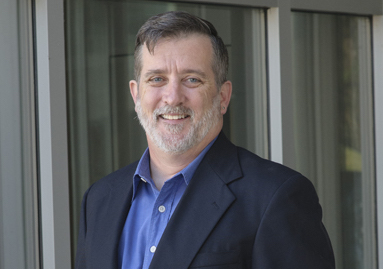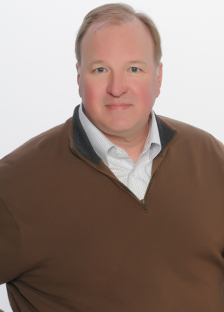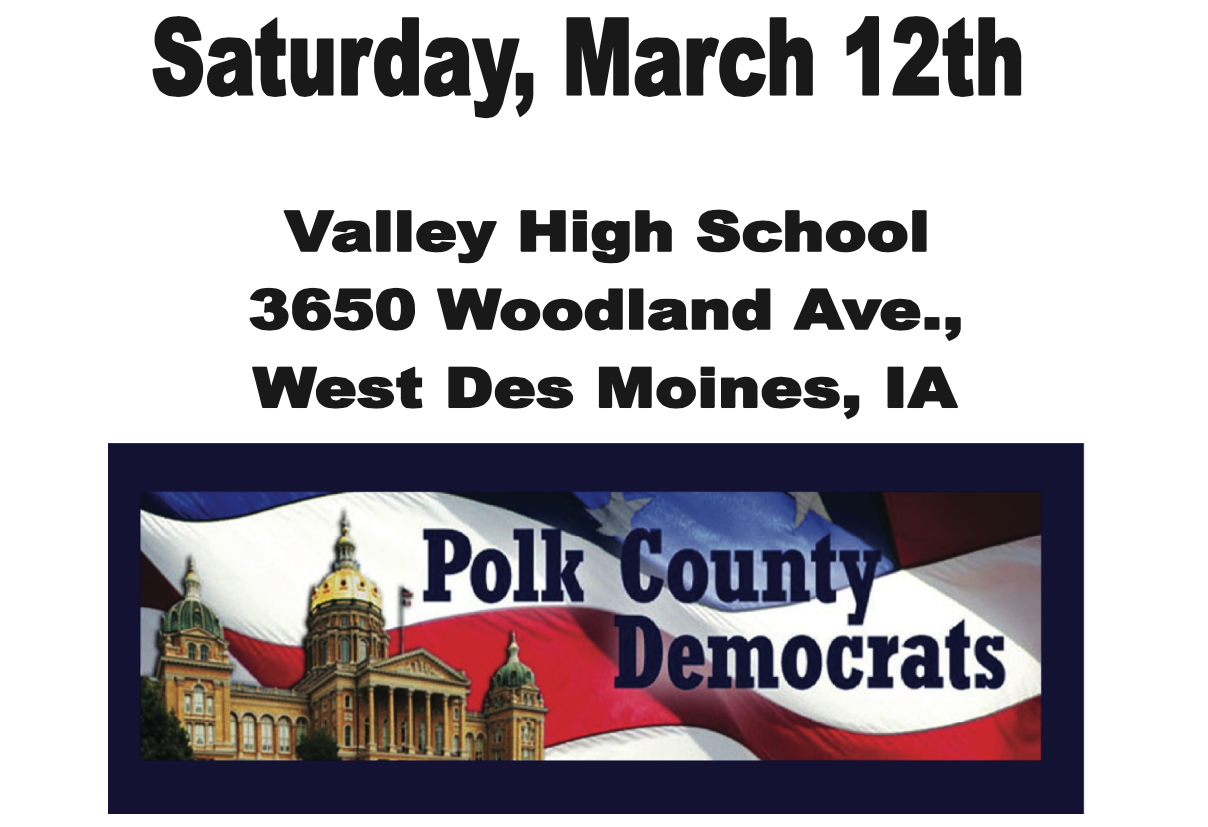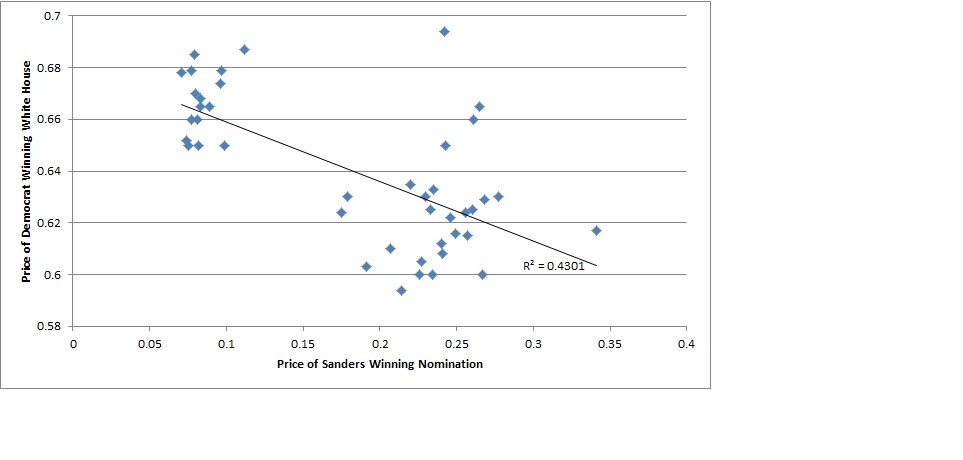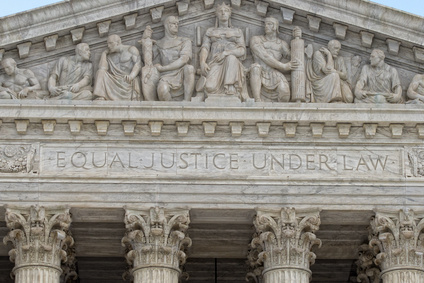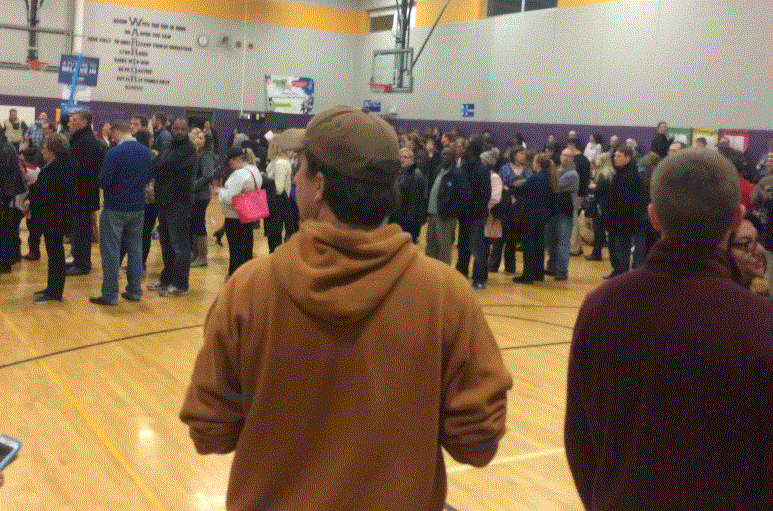The Des Moines Register released more results from Selzer & Co’s latest Iowa poll today. Jason Noble led with the presidential preference numbers: among 542 Iowans likely to vote in the June 7 Democratic primary, 42 percent support Bernie Sanders, 40 percent favor Hillary Clinton, and 11 percent support neither candidate. (No-party voters or Republicans can change their registration to cast ballots in the Democratic primary.) In the same survey, 58 percent said Clinton is better positioned to beat Donald Trump, while 29 percent believe Sanders has a stronger chance in the general election.
The most striking finding for me: Clinton and Sanders have the same net favorability at 62 percent. About 35 percent have an unfavorable view of Clinton, and 34 percent say the same about Sanders. Clinton has only slightly lower “very favorable” and slightly higher “very unfavorable” numbers than Sanders does. That’s a big slide in positive impressions of the Democratic contenders compared to the last two Selzer polls before the Iowa caucuses. A Des Moines Register poll taken in early January indicated that “89 percent of likely Democratic caucusgoers view Sanders favorably, and 86 percent of them view Clinton favorably.” During the last week before the February 1 caucuses, Selzer measured the net favorability for Clinton at 81 percent and for Sanders at 82 percent–both close to the 86 percent number for former President Bill Clinton.
Granted, Selzer was not interviewing the same respondent pool in all of these surveys. Still, I was surprised to see net favorables for both Clinton and Sanders so low among people who are likely to vote in tomorrow’s Iowa Democratic primary. The long and increasingly bitter competition for the presidential nomination appears to have turned a lot of Democrats off both candidates. Many Sanders supporters resent Clinton’s establishment or corporate ties and believe primaries in some states have been “rigged” on her behalf. Many Clinton supporters are angry that Sanders plans to take his fight for the nomination to the floor of the Democratic National Convention, despite trailing Clinton by millions of popular votes and hundreds of pledged delegates–a wider gap than Barack Obama’s lead over Clinton at the same point in 2008.
Healing these hard feelings over the summer should be a priority for party activists. Democratic hopes of seriously challenging Senator Chuck Grassley, defeating Congressional Republicans Rod Blum and David Young, holding the Iowa Senate majority, and winning back the Iowa House depend on a strong turnout in November.
P.S.- The Iowa Democratic Party’s Caucus Review Committee should consider these findings as they weigh whether to introduce bound delegates, so that presidential campaigns don’t have to keep fighting each other at county and district conventions. I still occasionally hear Democrats expressing anger and frustration over this year’s Polk County Democratic convention.
UPDATE: The Associated Press reported on the evening of June 6 that Clinton has clinched the Democratic nomination, having won 1,812 pledged delegates in primaries or caucuses as well as the support of 571 superdelegates surveyed by AP journalists. More details are on the AP’s delegate tracker. Most of Iowa’s superdelegates committed to Clinton long ago, though to my knowledge Iowa Democratic Party Chair Andy McGuire is still officially neutral.


